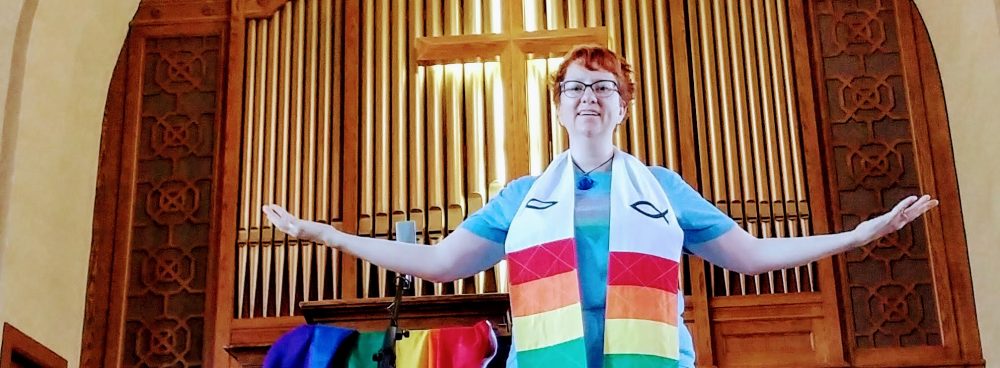Jeremiah 17:7-8 offers these words “Blessed is the one who trusts in God, and whose hope is in God. For they shall be as a tree planted by the waters, who spreads out its roots by the river, and shall not fear when heat comes, but its leaf shall be green; and even in years of drought it will stay green and bear fruit.”
I love this image…A tree planted by water, spreading roots out into the river. It has a sense of lushness. I want to be like that tree with roots growing deep but with everything going on in life and in the world, I’m not feeling like a tree planted by water with roots going deep and drinking up all the water. I’m not even feeling like the plant that continues to grow in the drought. I feel more like the drought itself. Dried up and worn out. I don’t know about you but I’m tired. So tired. I’ve lost my mojo, my get up and go. Some days I have my get up but not much go.
Today I just want to soak in the word of this passage: “Blessed is the one who trusts in God, and whose hope is in God. For they shall be as a tree planted by the waters, who spreads out its roots by the river, and shall not fear when heat comes, but its leaf shall be green; and even in years of drought it will stay green and bear fruit.”
I invite you to take a few moments to soak in the sounds, images, words of the river. I invite you to be refreshed in these moments.
It can be really challenging to feel the nourishing of God’s spirit in these challenging times, but we need reminders that our faith really does give us those roots that go deep into God’s love. We need reminders that even when we feel like the drought, we might be a bit like the dandelion growing through the cracks. If the dandelion is growing through the cracks, there has to be moisture somewhere, even just a bit, and that might be enough to sustain us. And that is a sign of hope. Jim Cotter offers a paraphrase of the Lord’s Prayer which includes this line. “With the bread we need for today, feed us.” Maybe not just the bread we need but the water, the nourishment, the hope we need for today…sustain us.
There are lots of different ways to tap into the deep waters of God’s presence and put down roots. I know for myself that when life gets overwhelming and stressful, these are often the first things to go from my daily routines and yet, that is when I most need these nourishing practices. For me, Yoga and meditation are two of the things that allow me to feel the deep sense of God’s presence. We will each have our own practices. These could include baking or cooking, sewing, knitting, photography, any kind of artwork, hiking, skiing, canoeing, running, building something, quiet prayer, writing cards…so many options that allow us to be reminded of God’s presence. Almost anything can be a practice that connects us with the living water. One of the keys is to approach it with openness to God’s spirit being at work.
Our hope for the future, whatever that looks like, is in God. We can’t control or predict the future but in order to thrive in whatever comes, we need to have roots firmly planted by the river so that when the heat comes, we will not fear, we will thrive and bear fruit even when we feel like we are living in drought.
May we find our roots and send them deep into God’s spirit and be nourished like the trees planted by the river.

